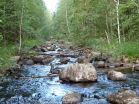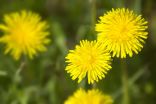Cheek muscles hold up better than leg muscles in space
New research in The FASEB Journal compares responses of cheek and leg muscles to the lower gravity of space, suggesting that food comes first
2015-06-30
(Press-News.org) It is well known that muscles need resistance (gravity) to maintain optimal health, and when they do not have this resistance, they deteriorate. A new report published in the July 2015 issue of The FASEB Journal, however, suggests that this might not be true for all muscles, offering hope that there may be ways to preserve muscle mass and strength for individuals in low-resistance environments, whether it be the microgravity of space, extended periods in a hospital bed, or a 9-5 job behind a desk.
"Maintaining muscle mass and good muscle repair is key to all areas of our lives: successful aging, combatting devastating diseases like muscular dystrophy, as well as generalized health and well-being to improve quality of life," said Elizabeth Barton, Ph.D., a researcher involved in the work from the College of Health and Human Performance, Applied Physiology and Kinesiology at the University of Florida in Gainesville, Florida. "Figuring out these pathways may lead to strategies that can enhance training effects for healthy individuals, and also to therapeutics that can counter the loss of functional muscle in genetic diseases or aging. Clearly, the 'use it or lose it' rule has broader impact than on muscle alone."
To make their discovery, Barton and colleagues used two groups of mice. The first group (space mice) rode on the STS-135 Space Shuttle for two weeks, and the other group (Earth mice) remained on the ground. In space, the mice's leg muscles experienced no load due to gravitational weightlessness. However, because of chewing, the cheek muscles of the space mice were still used. Upon muscle measurement of both groups, the researchers found that the leg muscles of the space mice lost mass but their cheek muscles did not (when compared to the Earth mice). Further, the cellular signals that control the size of muscles were very different between the muscle groups of the space mice, suggesting that the cheek muscles regulate their mass in a different way than leg muscles. With this information, the researchers took their work a step further and switched the space mice to a liquid diet, which relieved the cheek muscles of any load (resistance) and then tested how the signals changed. Only part, but not all, of the muscle signals changed similarly to the way that the leg muscles did in space, leaving these muscles relatively robust and healthy. This suggests that different muscles have different "set-points" for regulating muscle mass.
"Research like this will help humans go farther into space than ever before, but the most profound impact will be here on the ground," said Gerald Weissmann, M.D., Editor-in-Chief of The FASEB Journal. "The process that causes astronauts' muscles to waste away in space is the same as that which causes inactive people to lose muscle mass on earth. Muscles like those in the cheek may serve as a guide to preserving other muscles, not only against microgravity in space, but also inactivity on Earth."
INFORMATION:
Receive monthly highlights from The FASEB Journal by e-mail. Sign up at http://www.faseb.org/fjupdate.aspx. The FASEB Journal is published by the Federation of the American Societies for Experimental Biology (FASEB). It is the world's most cited biology journal according to the Institute for Scientific Information and has been recognized by the Special Libraries Association as one of the top 100 most influential biomedical journals of the past century.
FASEB is composed of 27 societies with more than 125,000 members, making it the largest coalition of biomedical research associations in the United States. Our mission is to advance health and welfare by promoting progress and education in biological and biomedical sciences through service to our member societies and collaborative advocacy.
Details: Anastassios Philippou, Fabio C. Minozzo, Janelle M. Spinazzola, Lucas R. Smith, Hanqin Lei, Dilson E. Rassier, and Elisabeth R. Barton. Masticatory muscles of mouse do not undergo atrophy in space. FASEB J. July 2015 29:2769-2779; doi:10.1096/fj.14-267336 ; http://www.fasebj.org/content/29/7/2769.abstract
ELSE PRESS RELEASES FROM THIS DATE:
2015-06-30
Here's more evidence that fish oil supplementation and antioxidants might be beneficial for at least some people facing Alzheimer's disease: A new report published in the July 2015 issue of The FASEB Journal describes the findings of a very small study in which people with mild clinical impairment, such as those in the very early stages of the disease, saw clearance of the hallmark amyloid-beta protein and reduced inflammation in neurological tissues. Although the findings involved just 12 patients over the course of 4 to 17 months, the findings suggest further clinical ...
2015-06-30
WASHINGTON - Cardiac arrest strikes almost 600,000 people each year, killing the vast majority of those individuals, says a new report from the Institute of Medicine. Every year in the U.S., approximately 395,000 cases of cardiac arrest occur outside of a hospital setting, in which less than 6 percent survive. Approximately 200,000 cardiac arrests occur each year in hospitals, and 24 percent of those patients survive. Estimates suggest that cardiac arrest is the third leading cause of death in the U.S. behind cancer and heart disease.
Following a cardiac arrest, each ...
2015-06-30
WASHINGTON, DC --June 30, 2015--Human urine contains factors that prevent a common culprit in urinary tract infections (UTIs), uropathogenic Escherichia coli bacteria, from properly attaching to bladder cells, a necessary step for infection. The research, published this week in mBio, the online open-access journal of the American Society for Microbiology, reveals a weakness that could be exploited to develop more effective, non-antibiotic treatments for UTIs.
"There is a pressing, unmet need when it comes to developing new and better ways to treat UTIs," says Scott Hultgren, ...
2015-06-30
WASHINGTON, June 30 -- Hantaviruses use cholesterol in cell walls to gain access into cells and infect humans, according to laboratory research published this week in mBio®, the online open-access journal of the American Society for Microbiology.
"Our work demonstrates that hantaviruses are extremely sensitive to the amount of cholesterol in the membranes of the cells they are trying to infect," said senior study author Kartik Chandran, Ph.D., an associate professor of microbiology and immunology, and Harold and Muriel Block Faculty Scholar in Virology, at the Albert ...
2015-06-30
From our nation's founding, the Fourth of July has been synonymous with fireworks.
While many grew up learning that fireworks can be dangerous to the eyes and hands if not handled properly, fireworks also produce air pollutants, including particulate matter, that are linked to short-term or long-term health effects.
NOAA scientist Dian Seidel and Abigail Birnbaum, a student intern at NOAA, have authored a new study appearing in the journal Atmospheric Environment that quantifies the surge in fine particulate matter -particles that are two and one half microns in diameter ...
2015-06-30
Tiny marine algae that play a critical role in supporting life on Earth may be better equipped to deal with future climate change than previously expected, research shows.
Scientists investigated the likely future impact of changing environmental conditions on ocean phytoplankton, a microscopic plant that forms the basis of all the oceans' food chains.
Phytoplankton is important for absorbing carbon dioxide from the atmosphere, while generating much of the oxygen needed to sustain life on Earth.
The study grew phytoplankton at the high carbon dioxide levels predicted ...
2015-06-30
Greenwich, CT, 30 June, 2015 - A new paper to be published in The Journal of Shoulder and Elbow Surgery evaluates the effect that topical benzoyl peroxide (BPO), with chlorhexidine skin preparation, has on the presence of Propionibacterium acnes cultured at the time of shoulder surgery. The authors hypothesized that adding topical BPO, the active ingredient in Clearasil, to the pre-operative skin preparation would reduce the number of positive P. acnes cultures identified during surgery.
P. acnes infection is a significant problem after shoulder surgery. Residual P. ...
2015-06-30
New research has found that the number of plant species growing just next to restored streams can take up to 25 years to increase above those channelized during the timber floating era. This is according to doctoral student, Eliza Maher Hasselquist, and other researchers from Umeå University and the Swedish University of Agricultural Sciences (SLU).
In the Vindel River catchment in northern Sweden, the main channel and most tributary streams were channelized from the 1850s to the 1950s to accommodate timber floating, which stopped in 1976. Boulders in the streams ...
2015-06-30
Halle (Saale). The role of plant traits might be overestimated by biologists in studies on plant invasiveness. Anthropogenic factors such as whether the spcies was being cultivated proved to be more important. These conclusions were made from a study on Central European plants that were introduced by humans to North America and over time became naturalised in this continent. Naturalisation of new plant species, a process that makes it a permanent member of the local flora, most strongly depends on residence time in the invaded range and the number of habitats occupied by ...
2015-06-30
COLUMBUS, Ohio - Nanoparticles packed with a clinically used chemotherapy drug and coated with an oligosaccharide derived from the carapace of crustaceans might effectively target and kill cancer stem-like cells, according to a recent study led by researchers at The Ohio State University Comprehensive Cancer Center - Arthur G. James Cancer Hospital and Richard J. Solove Research Institute (OSUCCC - James).
Cancer stem-like cells have characteristics of stem cells and are present in very low numbers in tumors. They are highly resistant to chemotherapy and radiation and ...
LAST 30 PRESS RELEASES:
[Press-News.org] Cheek muscles hold up better than leg muscles in space
New research in The FASEB Journal compares responses of cheek and leg muscles to the lower gravity of space, suggesting that food comes first


